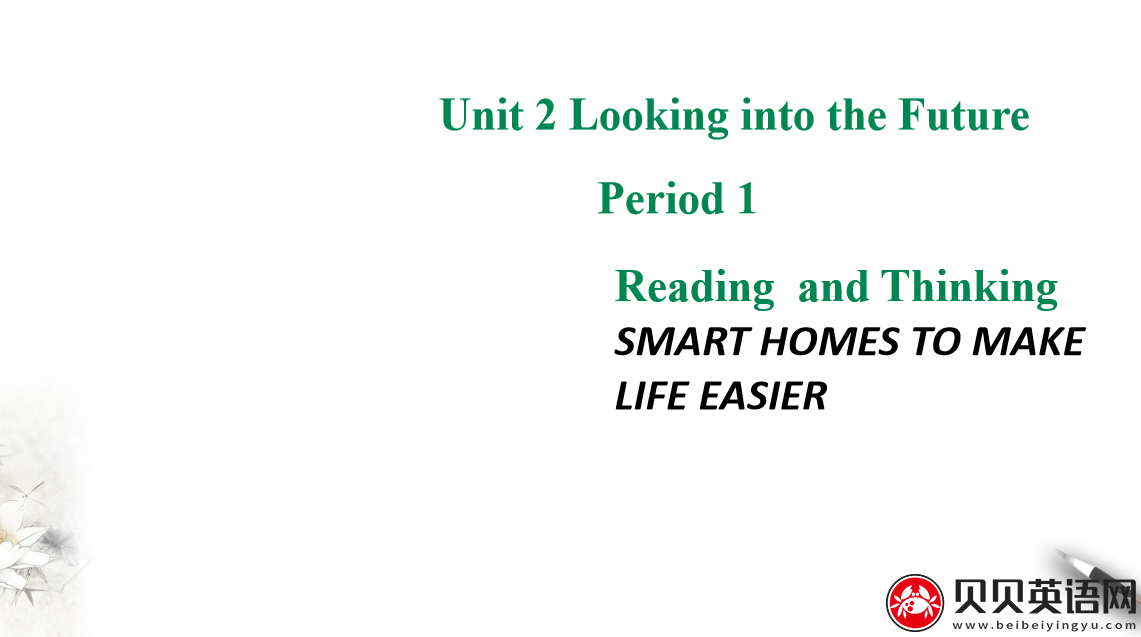欢迎访问贝贝英语网!

1. What does it mean when we say that something such as a phone is “smart”?
2. What do you think a “smart”house can do that other houses can’t?
Have you ever forgotten to lock the door of your house? Or, have you ever forgotten to switch off the TV or computer? These kinds of things happen to us all the time, waste resources, and can sometimes lead to problems. However, in the not-too-distant future, we will be living in smart homes that will lock the door for us when we are away and remember to switch off the TV when we forget. These smart homes will keep us secure, save us energy, and provide a more comfortable environment to live in.
Today, we have to use switches for our lights, knobs for our appliances, and remote controls for our TVs and air conditioners. In the future, we will be using advanced technology every day for automatic control of just about everything in our home. The future home will use integrated sensors to tell when you leave home each morning, and then go into an energy-efficient mode all by itself. You will no longer have to think about turning switches on and off yourself.
Your home will also learn your daily routine and preferences, so everything will be ready for you when you get home each evening. Your lights will come on the instant you enter the door along with your favourite music or TV programmes, and you will find your dinner already prepared for you. All controls will respond to voice commands, so if you want to change your routine, you just say aloud what you want and the home system will obey.
In addition, your smart home will be monitoring your health for you every day. Your bed, for example, will record how well you sleep every night. It will also be checking your body weight. If you start to have sleep or weight problems, it will send a warning to your phone. It will also give you suggestions on a healthier diet and how to sleep better. Smart toilets will be keeping constant track of your health as well. They can warn you early on if there is something abnormal or if you have a critical illness, such as cancer, and potentially save your life.